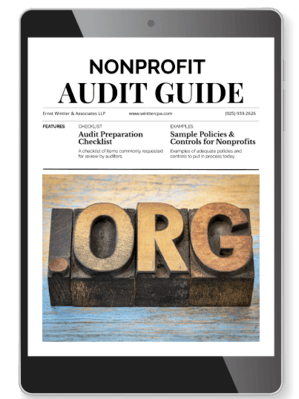Valuing donated items can be a challenging process for many nonprofit organizations, particularly when dealing with non-cash or in-kind contributions. Determining accurate values is essential for proper record-keeping and ensuring compliance with charitable tax deduction requirements. Your non-profit’s tax needs will likely include valuing donated items at some point, and while fair market value (FMV) is typically used, there’s no single formula for calculating it. As a result, proper valuation can be both complex and critical to maintaining financial accuracy.
FMV overview – Donated Items
The open market price is usually defined as the FMV. For example, for a clothing donation, the FMV would be the price that typical buyers pay for clothes of the same age, condition, and style. Conditions on the way your organization can use the donation can also impact the FMV. If a donor stipulates that a piece of art may only be displayed but not sold by your organization, it will affect the value of the donation.
According to the IRS, there are three major factors that impact the FMV:
- Purchase or selling price: This is the actual cost of the item to the donor or the selling price received by your organization. This price impacts the FMV less over time as market conditions change which will impact the current purchase or selling price.
- Comparable sales: The selling price of a similar item in the open market can be a reference point for determining the FMV. The weighting the IRS provides for a comparable sale includes:
- Degree of similarity between the property sold and the donated property
- Time of the sale
- Circumstances of the sale
- Market conditions
- Replacement cost: In the event that the donated property is part of a business’s inventory, the replacement cost can be part of the FMV calculation. Generally, businesses are able to deduct the smaller of its FMV on the day of the contribution or the inventory’s basis. The basis is any cost incurred for the inventory in an earlier year that the business would otherwise include in its opening inventory for the year of the contribution. For inventory donated that isn’t part of the opening inventory, its basis is zero and the business will not be able to claim a deduction.
Even if a donation cannot be deducted by the donor, your organization may be required to record the donation on your financial statements as the FMV. Ernst Wintter & Associates LLP specializes in California non-profit audits and tax preparation. Contact us today for help with your non-profit audit or tax prep needs.








